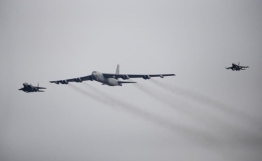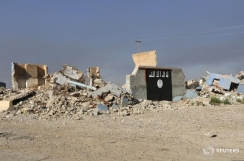
Although known to have powerful and highly sophisticated weapons that could potentially wipe out humanity, America could face defeat in a global war against Russia, China, Iran and North Korea, according to U.S. Army Chief of Staff Gen. Mark Milley.
Military officials recently testified before a House Armed Services Committee hearing about the United States' ability to fight a war with the global powers like Russia, stating that years of combat in Iraq and Afghanistan have constrained budgets while troop cuts have had cumulative effects on the service.
Milley told the committee that the United States could take on terror groups like the Islamic State (ISIS) but that he is not sure about America's four major potential foes, according to Associated Press.
"(The Army) is not at the levels that can execute satisfactorily ... in terms of time, cost in terms of casualties or cost in terms of military objectives," Milley said.
Air Force Secretary Deborah James also said she had requested for additional funds because the U.S. Air Force is currently not "sufficiently ready" for fighting against a country like Russia.
"Money is helpful for readiness but freeing up the time of our people to go and do this training is equally important," James said, according to Newsmax.
Air Force officials earlier cautioned that they are facing a shortage of more than 500 fighter pilots, adding that this gap could widen to more than 800 by 2022 unless it is filled up, according to reports.
In the fiscal 2017 budget, the Army reportedly requested $148 billion, a slight increase from the $146.9 billion budget for 2016.
The sharp increase in military spending started after the Sept. 11, 2001 attacks, reports said.
Despite the budget hike, the size of the U.S. Army is still expected to drop to 460,000 active duty soldiers in 2017 from the current 475,000, military officials said.
Earlier, Air Force General Philip Breedlove, NATO supreme allied commander and head of U.S. European Command said Russia posed a "long-term" existential threat to the United States.



















